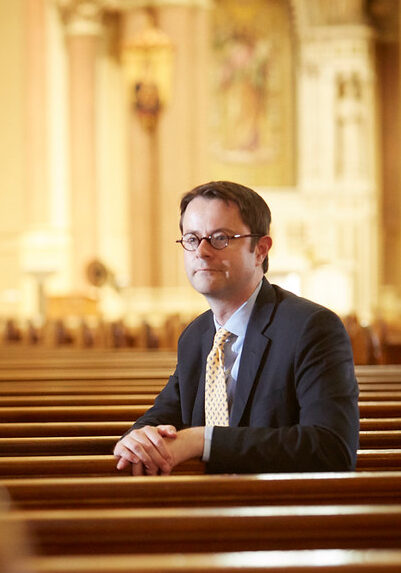
When you think about the quest for what we call human flourishing, you normally think in terms of theology or philosophy. Maybe sociology. Of all the -ologies and disciplines, the empirical sciences may be the last you think of. Which is what makes Harvard’s Human Flourishing Program interesting. The man leading that effort is Tyler VanderWeele, a professor of epidemiology at Harvard and director of the program. He talked to Common Good in March.
How does the Human Flourishing Program’s approach differ from others?
We are in fact trying to bring together the humanities and the empirical social sciences. And so we have on our program staff not only sociologists and psychologists and epidemiologists and statisticians, but also philosophers, theologians, and historians. We really think that knowledge about human flourishing would benefit from this interdisciplinary approach and that each of the disciplines has something unique to contribute. But then once it comes time to understand what factors and forces within society are shaping well-being, and how can we effectively promote well-being in practice, the empirical social sciences have an important role to play.
Can you give an example of that?
Right now we’re testing a forgiveness workbook intervention in a randomized trial with about 3,000 people. We’re using the same rigorous methodology that is used, for example, to evaluate vaccines. If we can show something like this forgiveness workbook is effective for addressing forgiveness and also depression and anxiety, and we can demonstrate this through empirical research, it has tremendous public health importance — and tremendous importance for our religious communities as well.
What is human flourishing?
The working definition that we have been using is that flourishing is living in a state in which all aspects of one’s life are good. And how we’ve tried to operationalize this for empirical research is to focus on five domains of human life, which are almost universally desired and are each their own end: happiness and life satisfaction, physical and mental health, meaning and purpose, character and virtue, and social relationships.
How do you see religious communities fitting into the pursuit of flourishing?
The empirical research suggests that religious community, in particular religious service attendance, really does powerfully shape health and well-being. There are now a number of strong, methodologically rigorous studies that indicate that weekly service attendance is associated with about a 30 percent decline in mortality risk over 10 or 20 years, a 30 percent reduction in the incidence of depression, and five-fold reductions in suicide. Religious service attendance tends to increase, on average, levels of happiness and purpose in life, reduce loneliness, improve social support, increase civic participation, volunteering, and generosity.
In some ways, it’s remarkable that these communities, aiming at communion with God or the transcendent, have such powerful effects on temporal health and well-being.
How have the circumstances in and around COVID-19 affected your approach to human flourishing?
So we’ve looked at how flourishing in these different domains has changed during COVID-19, and what we found is that some of the domains have been more adversely affected than others. Happiness and life satisfaction have come down, perhaps unsurprisingly. Social connectedness has declined a little bit, but much, much less than one might have anticipated given the social restrictions. And this has been corroborated by other studies as well.
Have there been what we could call social upsides to the lockdown?
People have found ways to connect or have invested more deeply in the relationships that they do have. I should, however, point out that these are averages. For some, I think this has been really hard socially. But for others, it perhaps has actually improved their sense of social connectedness by investing more in family or in close friends, for example. There’s research that suggests that children feel much closer to their fathers than was the case before the pandemic. My hope is that, as the pandemic comes to an end, there would be a deeper investment and deeper reflection on the importance of communal life.






This story is from Common Good issue 06.